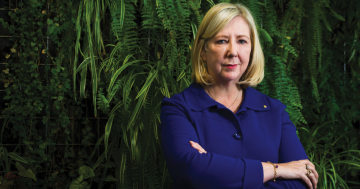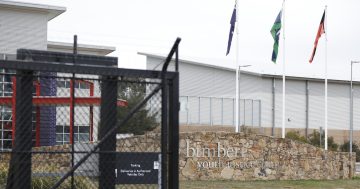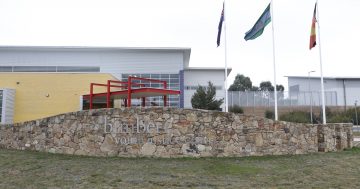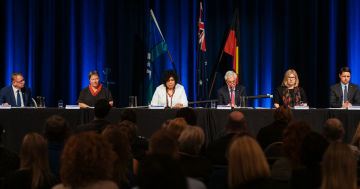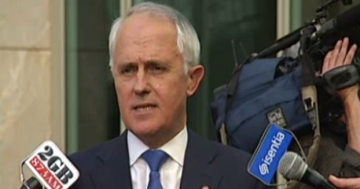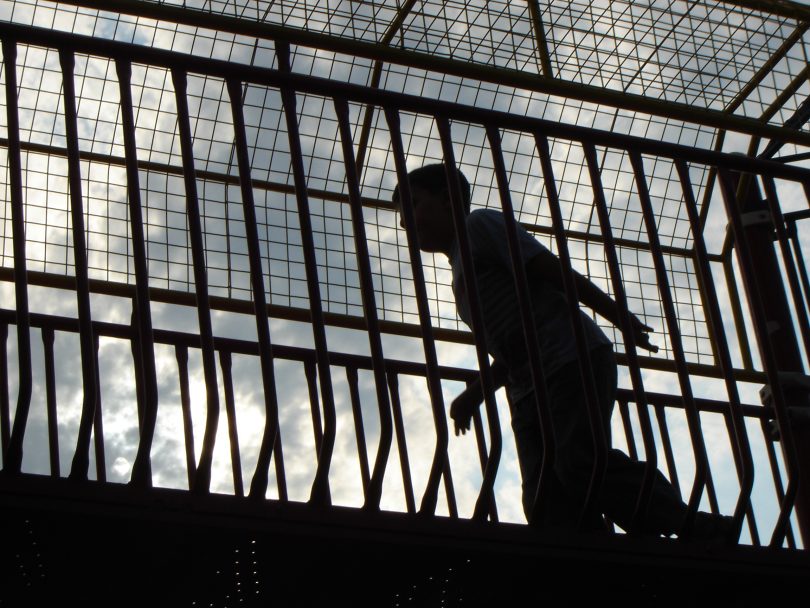
Youth detention centres are facing important reforms – and the ACT needs to pay attention.
Few of us can forget the ABC’s 2016 Four Corners Report documenting the abuses of children in detention in the Northern Territory (NT). This program shocked the nation and resulted in the calling of a Royal Commission the morning after the program went to air.
While it is easy to pretend that these issues are only relevant for the NT, the handing down of the final report last week by the Royal Commission, reveals findings that are important to engage with in order to reflect on the lessons that can be drawn from the NT experience and ensure we do everything we can to make sure that nothing like this happens to children in the ACT.
In addition to specific incidents of abuse, the findings highlight systemic failings that are not restricted to the NT. After the release of the final report, key community organisations are calling for action through Council of Australian Governments to respond to nation-wide issues highlighted in the Royal Commission. In addition to national action, it’s also vital that we engage at a local level and ensure, as a community, we have confidence that we are meeting our human rights obligations and duty of care to children that are held in detention.
In the ACT, children and young people aged between 10 and 21 who have a custodial sentence are held in Bimberi Youth Detention Centre. This was opened six years ago and was a purpose-built facility. It was a huge improvement to the arrangements in place before and considerable effort was put into ensuring that this facility was human rights compliant.
While it is a small population, there is still a significant number of children that are held in Bimberi each year. In 2015-2016, there were 68 young people between 10 and 17 held in custody. These children are most likely to be male, and like the rest of Australia, the proportion of Indigenous children in custody is far too high – in 2015-2016 it represented 25% of children detained (even though Aboriginal and Torres Strait Islander people represent 1.2% of the general population). Many studies have found that many children and young people in detention have been in the child protection system and there are many factors of vulnerability for children and young people who end up serving custodial sentences.
The ACT has not been immune to problems in its detention facility, with allegations this year of abuses of children in care, and assaults on staff. The ACT Human Rights Commission is currently investigating these claims, with a report due later in 2017.
This current focus highlights the need for us to be ever vigilant to ensure that poor practice and damaging culture does not develop behind closed doors. Indeed, a key global learning arising from the NT situation is that we need strong levels of external scrutiny regarding what is going on inside these facilities. It highlights the vital roles that official visitors, the ACT Human Rights Office, and external organisations play in maintaining openness and transparency in the functioning of these facilities, and highlights the need to ensure that these are valued, supported and properly resourced.
There are also three specific recommendations that have come from the Royal Commission that have particular relevance for us here in the ACT.
The first is the call for all jurisdictions to raise the age of criminal responsibility from the age of 10 to the age of 12, and only allowing children under 14 years to be detained for serious crimes. This change would be reflective of international standards and is based on solid evidence relating to child development and neurology. There is an opportunity for the ACT to lead the implementation of this recommendation, something that seems highly appropriate given our status as a human rights jurisdiction.
The Commission also called for an increased engagement with and involvement of Aboriginal Organisations in child protection, youth justice, and detention. Given our experience, this is something that should be headed here in the ACT.
The Commission also reflected on the issue that these facilities should not replicate adult prisons, and should be focused on healing and recovery. There has been some suggestion that part of this should include reducing the size and changing the design of facilities. This recommendation intuitively makes sense, particularly when we consider the vulnerability and emotional needs of young children. Its implementation is tricky however when we consider resourcing and logistics, given we have relatively small numbers in the ACT and the existence of a facility that can house up to 40. It would be useful for the ACT to consider ways in which the intentions that sit behind the recommendation can be responded to.
I think the NT Royal Commission findings on the back of recent local allegations are a call to action for us to improve our response to children in detention. While it would be easy to demonise children and families, we must instead reflect on ways that we can better protect children in detention and live up to the aspiration of us being a human rights jurisdiction. What do you think?











